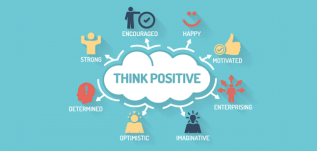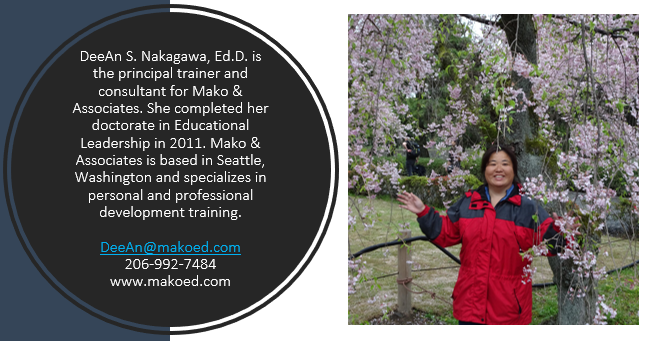
In training new lifeguards, I explain there is a difference between saying "No Running" and "Walk Please". Rather than telling someone what not to do, politely telling them what they should do is more likely to reap the action desired. If children are told to stop running and they instead start skipping, or even doing cartwheels, they have followed the directions they have been given but are still not abiding by the intended safety rules.
In the same vein of thinking, when river rafting, guides will "point positive". If you fall out of the boat, the guide will point to the direction you should go - not to areas which you should be careful. All of this is to avoid confusion and give clear directions. This can eliminate frustrations from not being understood and can be applied to both home and work lives.
There are also health benefits. Many of us tend to be our own harshest critics. This may be a motivation to strive for greatness, but it can also create greater stress in our lives. In contrast, positive thinking has been proven to have health and happiness benefits.
Johns Hopkins ran a study which found that there was a thirteen percent reduction in likelihood of heart disease in people with positive thinking compared to their negative counterparts - even in people with family history of coronary heart disease. A recent Harvard study focusing on optimism in women found that the top quartile had a lower risk of dying from diseases compared to the bottom quartile by almost thirty percent. These are benefits towards diseases, but positive thinking has also been proven to help with stress reduction, depression and more.
Clarity and health are just two examples of how positive thinking can benefit you. But how do you get started?
The easiest way to start is to just try to smile more. Smiling is contagious and even you are not feeling happy, your smile may help others feel better and is likely to become real to you.
Start infusing positive thinking in your self-talk. Rather than focusing on your frustrations or challenges, focus on what you have done and what you can do. Think in terms of your strengths and not your limitations.
When I first read "StrengthsFinder", I was stunned. I could have saved myself so many headaches and stresses if I did not worry as much about class subjects where I was weak like math and history and instead reveled in my creative strengths! Ok, maybe I needed to have my parents read "StrengthsFinder" first!
Start reframing your perspective. Rather than focusing on what you do not have or cannot do, think in terms of what you can let go of and what you can accomplish and help others around you to do the same.
For yourself, for your family and friends, for your co-workers and for your career, positivity has profound and lasting benefits and is worth your time and energy.
For more on being a positive contagion in your workplace, visit our website at www.makoed.com, email Mako & Associates at DeeAn@MakoEd.com or 206-992-7484.
